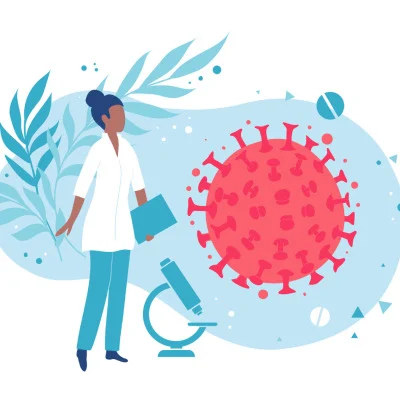The COVID-19 pandemic has inspired an unprecedented amount of healthcare-related research in various fields, from drug and vaccine development to epidemiological modelling. Preprints abound, but some warn about the dangers of releasing research without proper verification.
You may also like: Warnings about Potential Treatments for COVID-19
“I am impressed by how quickly the scientific community has put together a lot of work, and has collaborated on making the results open – that hadn’t happen so much in the past,” says Prof. Andy Tatem, Professor of Spatial Demography and Epidemiology at University of Southampton, in his interview in the upcoming HealthManagement.org The Journal special issue, COVID-19 Care Continuum.
The concerns, however, are growing about the quality of such
‘accelerated’ research studies. “One usually would not recommend therapy unless the
benefit reaches statistical certainty in two prospective randomized controlled
studies. However, we do not have years to wait for these studies, we are forced
to act on best evidence, but in some cases the evidence is less than
actionable,” Kevin Kavanagh and Lindsay Calderon write
in Infection Control Today. In their
piece, they provide examples of how initial favourable reports on the
effectiveness on certain COVID-19 treatments, such as hydroxychloroquine, angiotensin
converting enzyme inhibitors (ACEi) or angiotensin receptor blockers (ARB), have not
been confirmed by consequent studies. “In the new reality of making
decisions with limited and incomplete data, it is important that decision
makers and scientists are free from biases,” they conclude, warning against
carelessness “in both reporting and interpreting messaging, including the
results of unconfirmed research.”
This viewpoint is further supported by Alex London and
Jonathan Kimmelman in their article
in Science. They argue that global crises are no excuse for lowering scientific
standards, even if the situation may demand exceptions to the usually high
standards of research for science to become feasible. The authors expose three
problematic assumptions. The first is that evidence now, regardless of its
validity, seems preferable to more-demanding studies with only potential benefits.
The second is that key features of rigorous research (eg randomisation or
placebo comparators) conflict with clinicians’ care obligations. The third is that
research organisation and design is exercised at researchers and sponsors’ broad
discretion.
The authors outline five criteria of quality research: importance;
rigorous design; analytical integrity; complete, prompt and consistent
reporting of trials; and feasibility. They stress that research and public
health stakeholders have a responsibility to evaluate and triage studies that
fail to meet these criteria.
At the same time, Prof. Tatem believes that currently it is
the responsibility of the scientific community to highlight and point out problems
with preprints. “I do see a lot of that happening on social media and news
articles – when something has a bit of a headline, but the study hadn’t been
reviewed and there are major problems with it. I am hopeful there is a kind of
self-correction mechanism in that, but it is still a concern as spreading
unverified information can be dangerous.”
Image credit: Liliia
Kyrylenko via iStock


![Tuberculosis Diagnostics: The Promise of [18F]FDT PET Imaging Tuberculosis Diagnostics: The Promise of [18F]FDT PET Imaging](https://res.cloudinary.com/healthmanagement-org/image/upload/c_thumb,f_auto,fl_lossy,h_184,q_90,w_500/v1721132076/cw/00127782_cw_image_wi_88cc5f34b1423cec414436d2748b40ce.webp)







